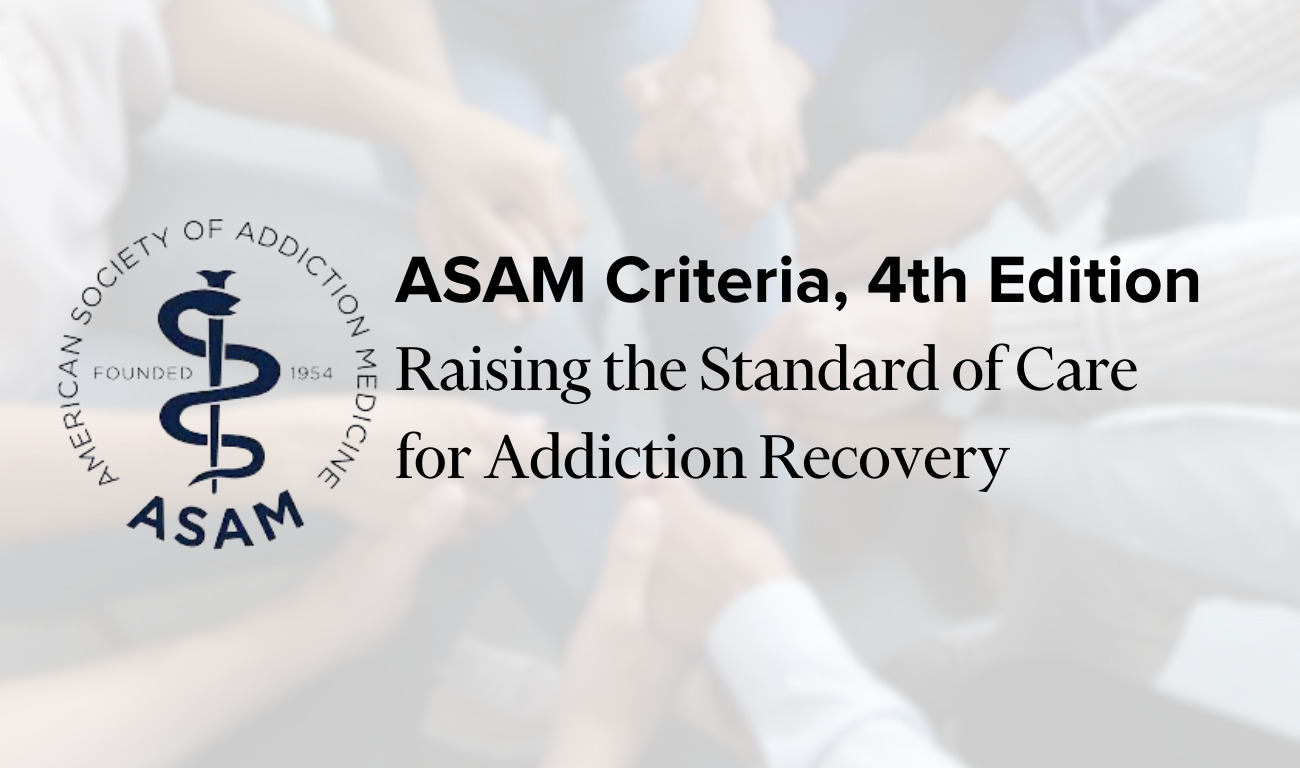This November, the distinguished American Society of Addiction Medicine (ASAM) will release the Fourth Edition of The ASAM Criteria, which sets the standard for clinical care in addiction recovery. Guidelines for placement, continued stay, transfer, or discharge are followed by behavioral health programs to ensure quality care. The latest release has been informed and vetted by diverse stakeholders in response to the developing needs of the healthcare field. As a result, the updated standards for treatment help care managers make better, more objective decisions based on the established guiding principles.
The updated continuum of care promotes:
- A CHRONIC CARE MODEL – Ongoing care for those in remission.
- INTEGRATION OF CARE – Incorporating biomedical and psychosocial services for withdrawal management and continued care for clients with acute biomedical concerns.
- CO-OCCURING CAPABLE CARE – Integrated care for mental health conditions.
- ACCESS TO RECOVERY SUPPORT SERVICES – Coordination between addiction treatment programs and recovery residences.
- HARM REDUCTION – More patient involvement in goal setting, preferences, and access to addiction medication.
The Fourth Edition offers operating standards for the Level of Care Assessment (used to determine the recommended level of care) and the Treatment Planning Assessment (used to develop the comprehensive treatment plan.) Each multidimensional assessment must consider biological, psychological, social, and cultural contexts. A thorough evaluation of problems and strengths is vital to developing a successful, patient-centered treatment plan.
The ASAM Criteria Dimensions updates make it easier to understand and share these standards while keeping up with the changing terminology in the field. The subdimensions introduced will help the clinician make recommendations based on their findings and the patient’s willingness to engage.
New chapters in The ASAM Criteria include:
- Early Intervention and Secondary Prevention
- Telehealth and Other Health Technologies
- Integrating Recovery Support Services
- Integrating Trauma-Sensitive Practices, Culturally Humble Care, and Social Determinants of Health
- Addressing Pain
- Addressing Cognitive Impairment
The behavioral health programs that adopt these standards and track their metrics are more equipped to provide evidence-based care for their clients. A task-based workflow that charts progress and automates documentation improves outcomes. Alleva’s data-driven EMR helps optimize and streamline the standards compliance process. Compiling outcome data with our advanced business intelligence tools and built-in task-based documentation options helps reduce error and burnout.
If you want to learn how Alleva’s state-of-the-art EMR platform can upgrade your program to meet the highest standards of care, book a quick, hassle-free demo tailored to your needs.

